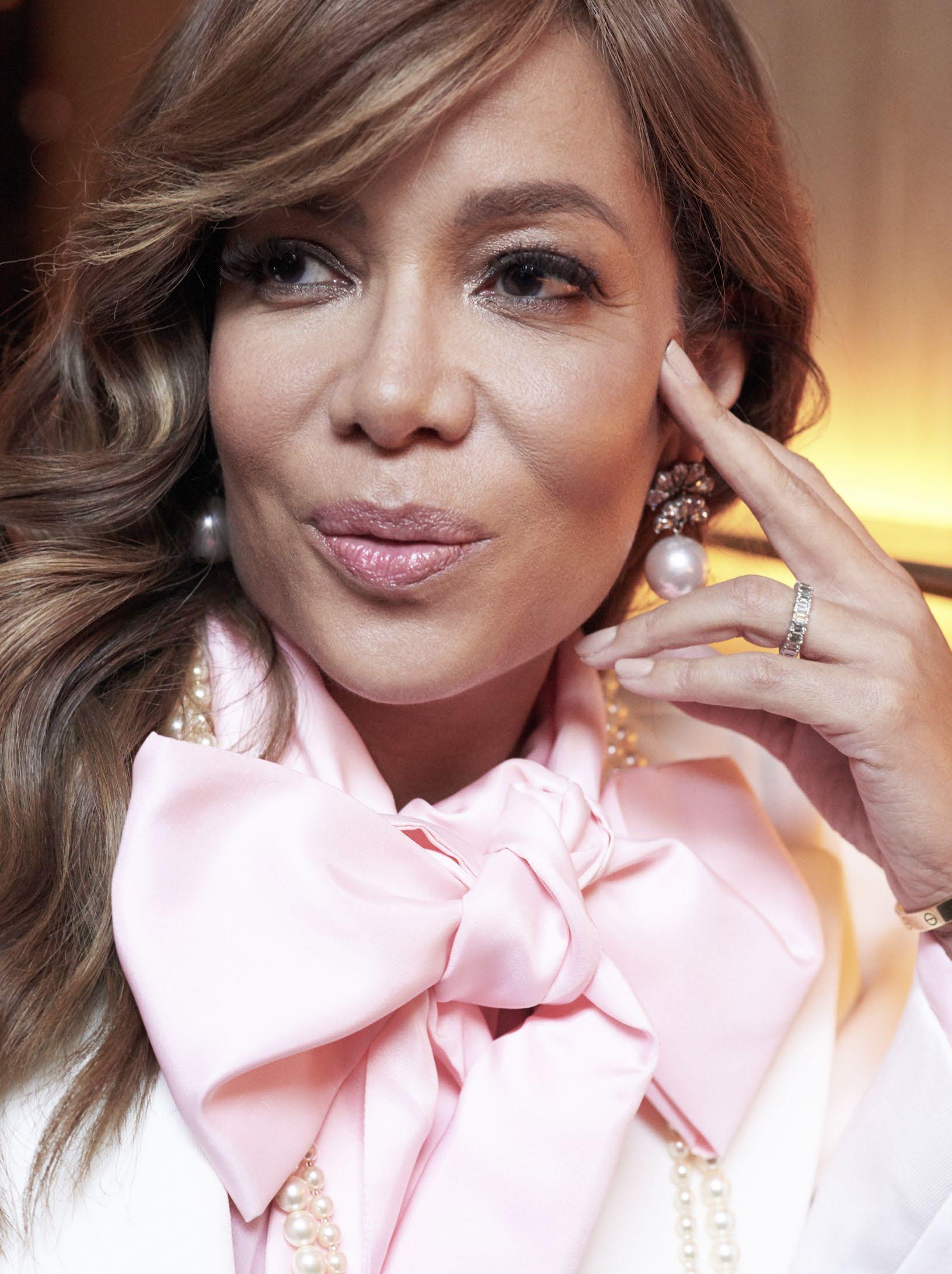
15 minute read
COVER STORY
is image has been everywhere. From billboards and magazine covers, to the big and small screen, there isn’t a place where you haven’t seen Tyson H Beckford. Best known for his work with fashion giant Ralph
Lauren, the legendary model, actor, and entrepreneur is one of the most successful male supermodels, having achieved the fame and notoriety similar to the female supermodels of his time.
Advertisement
First discovered in 1991, Tyson’s life and career changed a year later when he became the face of the Ralph Lauren Polo line. What makes his story even more interesting is he never envisioned himself as a model. His goal was to become an actor.
Despite thinking his modeling career wouldn’t last long, it did, opening up even more doors, which eventually led to projects in TV and film. “I was always on my path, I just veered off of it to take a couple pictures,” he says jokingly.
These days, Tyson has turned his creative focus toward his entrepreneurial projects, as well as stepping behind the camera as a writer and producer. In addition to his eponymous sunglass line, which launched last September, he recently launched cologne, Orion Skye, along with a hand sanitizer line.
For a man who has had an amazing career to date, Tyson is by no means finished. As humble as he is handsome, the mega star is dedicated to continuing to build his legacy. He opened up to BELLA about his longstanding career, the work he’s doing now, and also shed light on the ways in which he continues to remain inspired.
Some fans may not know this, but you grew with a passion for music along with a desire to act. Did you always have a love for the arts? I am very drawn to the creative; I used to draw and sketch. I would sit there with my drawing book and go into another world. I miss it and would love to get back to drawing—even meditating— because for me they’re both stimulating. Right now we all should be doing the things that stimulate us, not stress us.
When I was young we took school trips to the museum and I enjoyed going while the other kids didn’t. My permission slip was always signed— anything to get us kids out and doing things. Back then we didn’t come straight home from school, we participated in afterschool programs.
Were you bullied as a child as a result? I was bullied and picked on, but I was strong. Plus, my brother would come out and tell me that if I Iost, he was going to beat me up, and I didn’t want that. I was always teased about my Chinese heritage; growing up there weren’t too many Asian mixed Black kids, and they used to go to town on me. But I learned to have a tough skin, and once my mom dropped me off at martial arts, it was over. Was building that tough skin helpful when you began working in a business full of rejection? “ I am very drawn to the creative...” Yes, it was. I remember heading out on go-sees and having the person behind the desk not even look at my book. I had some choice words for them and then it turned into me becoming the bad boy of fashion; I didn’t take shit from anyone. Before we had the “Me Too” movement, I had people in the industry try inappropriate things, but I let them know I was from the Bronx and not having any of it. I was there for business only, nothing else.
You have a son who is also following in your creative footsteps. How did he develop his passion for music? I was playing everything from Miles Davis to James Brown to Eric B. and Rakim. His mom grew up with the sounds of Janis Joplin and Cole Train, plus we both are big Guns N Roses fans, so he was around music from both ends.
His grandfather also taught him how to play the guitar, and he’s self-taught on a lot of the instruments he plays. I can play the drums a little but that’s pretty much the only instrument I can play. He’s been around a studio since he was 11 years old. For us, we know this boy is going to be a musical genius when he’s ready.
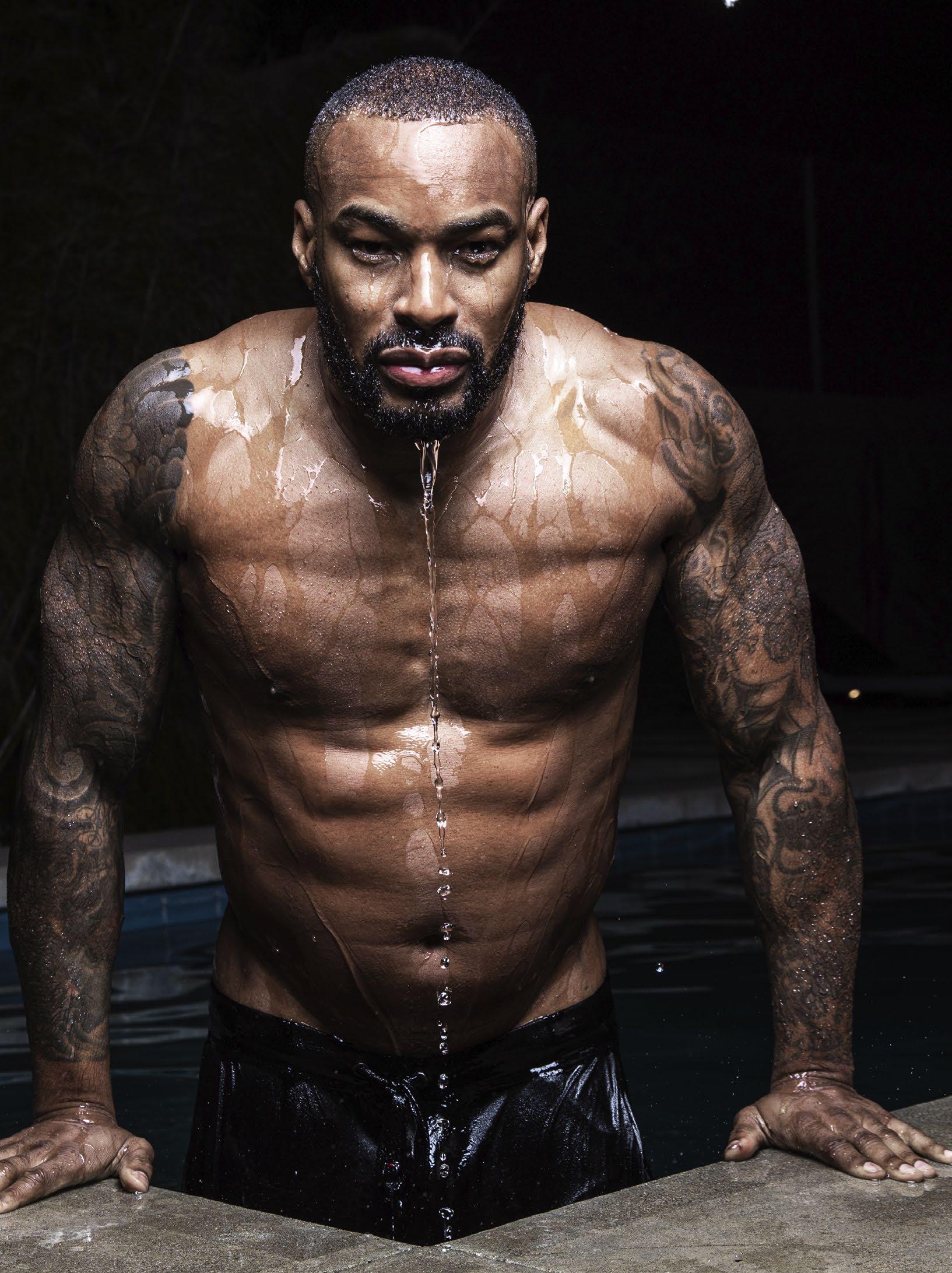
He also produced the music for your new cologne, Orion Skye. How did the opportunity come about? We had a few days to get it together so I sent him the video, he asked me the vibe, and came back with three tracks. Out of those three I was able to pick the one, and when I told him what I picked, he said it was the same one he wanted to choose. We are really on the same wavelength. Even if he and I don’t speak for a week or so, me, him, and his mother are all on the same vibe. He definitely has both our blood in his veins.
Was this the first time you worked together? No, we had done a shoot for Chinese GQ together, and now he’s going to be scoring the music for my next production, a scripted TV series called “Throttle.” It really is amazing being able to collaborate with him.
You’ve been the face of many brands and now you have your own. Were you involved in creating the scent for this new cologne? I was involved from start to finish. I was asked what some of my favorite colognes were and I sent over a list of what I liked such as Ralph Lauren Polo, Tom Ford, and Bvlgari. From there we came up with a scent that was amazing. Suggestions were made for the name, but when they mentioned this one, it stuck with me. I have always been into space and astrology, so when I heard it, it was instantaneous.
You’ve spent more than half of your life in front of the camera, now you’re stepping behind it. What encouraged you to do so? Being on set, and watching and learning from others has been such an inspiration. I’m more driven to be a producer than an actor, and coming up with this scripted TV series has been an amazing journey.
Can you tell us more about the series? “Throttle” is sort of like “Miami Vice” meets “Fast & Furious.” My partner and I, Steve Hawthorne, created the concept and teamed up with a writer, Adam Targum, who’s written for “Banshee” and other action-adventure shows. I was a fan, and once we clicked, we knew we were going to create something amazing together.
Creating the characters was intriguing, and I pulled a lot of stuff from my own life. In talking to friends, I’ve heard all sorts of stories, and some of these guys I brought in to help out with scenes. So some of the stories are true, just the names have been changed.
Right now we are shopping the series, which is something I’ve never done before. I’ve written five scripts, but this is the furthest I’ve gotten.
In a few short months you’ll be celebrating a milestone birthday; how do you stay young at heart? By taking good care of myself. I work out, focus on my health, and I put in the work. The way you grow is from the inside out, not the other way around.
Fifteen years ago you were involved in a bad car crash and it had a profound affect on your spirituality. How did the accident change the direction of your life? It was almost like a rebirth. I realized how important the things were that I took for granted. I could have died that day and left my son fatherless, and I can’t imagine what my mom would have gone through if she lost me. I told myself I have to be more careful in life, not take so much risk. I love fast cars and fast bikes, but I need to remember I’m not immortal.


Sunny ostin H

SPEAKING HER TRUTH
BY ALEXANDRA ANASTASIO PHOTOGRAPHY BY NEIL DAWSON
rom her days as a child growing up in the South In your new memoir, “I Am These Truths,” you talk about the importance of education in your home starting at a young age. Would you say your passion for helping others comes from having a strong support system? Bronx and New York City, Not everyone has that type of home environment, and those that do have really attorney-turned-journalist supportive parents, or even one parent who may be working and doing everything Sunny Hostin has parlayed her they can, and that child might not see anyone out there who looks like them. They don’t have what I like to call a “possibility model.” wealth of knowledge of the legal system into another successful career. If I could make it from the South Bronx projects onto “The View” stage, interviewing While she began her journey as a federal every presidential candidate, anyone can, but they need to see it’s possible. I had the prosecutor, Sunny’s early childhood imagination and the support, but not everyone has that. Education, plus opportunity, plus support is a winning combination; you just have to know it’s possible. passion for telling stories eventually came to fruition, and what was once just Besides your parents, who else was influential in your journey? a “fanciful thought” became reality. Someone once told me that every decision made about your life is made when you aren’t in the room. You must have a champion in that room “I wanted to be a writer and a broadcast journalist,” says Sunny. “I’d watch ‘60 Minutes’ with my parents and practice telling stories in the mirror with a hairbrush.” SUNNY HOSTIN that is willing to spend his or her power on you. I’ve had those champions throughout my life who were willing to expend their political power on me, and that’s really a blessing. I try At that time, Sunny says there I AM THESE TRUTHS to be that champion for others because I now have a seat at the table, now I’m in the room. weren’t many role models that resembled her on TV, and it was You share many personal stories scary for her parents, who risked it all to make sure their only child in your book. What made you decide to open up your life in such a public way? was super educated, to suddenly If you’re going to write about go off and vie for a TV career. “A your life you have to share the non-traditional career scared my good, the bad, and the ugly. You must be authentic. I think this mom; she felt a lawyer or a doctor was the right time for the book were the safe careers that would to come out because of what ensure financial stability.” our country is going through. I was encouraged by my book A M E M O I R O F I D E N T I T Y, agent, Ryan, who I met years ago Today, the four-time Emmy Award JUSTICE, AND in a writing class. winner and co-host of “The View” remains dedicated to advocating for marginalized communities LIVING BETWEEN WORLDS Also, in speaking to Justice Sotomayor, I was told a story I should share. I felt that we and giving a voice to the voiceless. As a are similar—we’re both lawyers and we’re both Latinas from the South Bronx. She champion for the people, she’s proven pointed out the importance of having a platform, [and] of being a journalist having that anything is possible. little Black and Latino children watch you, and how powerful that is. And then she implored me to not only have the book in English but in Spanish as well.
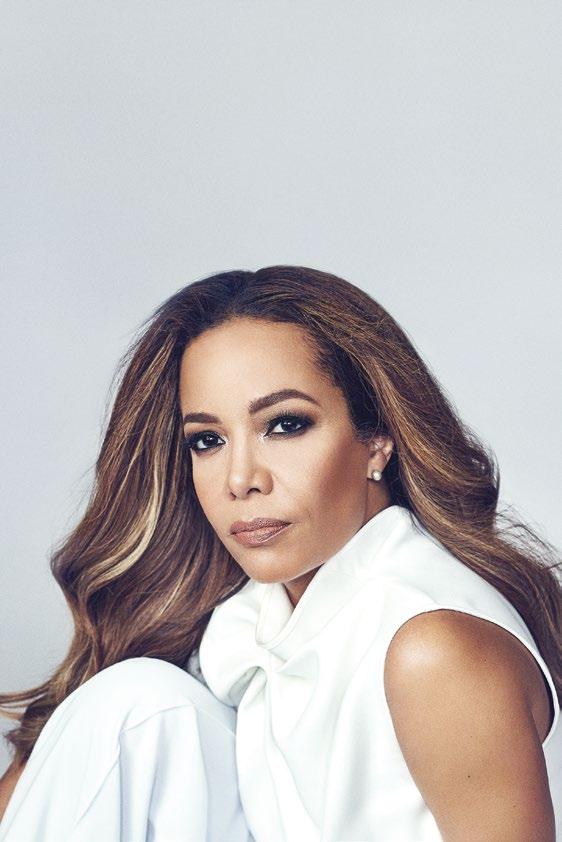
In her new memoir, Sunny shares some of the most intimate details of her life. Recently, she sat down with BELLA for an in-depth conversation about her life, her work, and her commitment to helping others. You talk candidly about your journey with IVF and the struggles you faced in becoming a mother. Was it difficult reliving this part of your life? That was the hardest chapter to write; I was reliving every second of it. When I recorded the audio book I was sobbing—happy tears—because I have two great kids, but it was such a painful time in my life although worth every bit of it.
My kids didn’t know they were IVF babies, and it was something I had to talk to them about. They were kind of shocked and intrigued by it and were so thankful we wanted them that badly.

A recurring thread throughout your life has been the question of, “What are you?” Do you still deal with the question today? Yes! Because I am mixed race, I’m constantly subjected to ‘Which box do I check?’ If I speak to a guest in Spanish, viewers are asking if I’m Hispanic today, even using the wrong terminology, or they’ll say, Sunny’s Black today—which one is it? The answer is both, every single day of my life. People have a hard time with race in this country, and I don’t think it’s going away anytime soon, but I’m happy the conversation at least continues.
Along with writing your memoir, you’ve also written a novel. What prompted you to write a fiction book? I used to travel a lot when I was with the justice department, and even with "The View," pre-pandemic, I was in and out of airports. I love to read and would find myself looking for a beach read but couldn’t find one, especially one based in the African American community. My girlfriends told me summer reads were over, and I thought, I go to places like Martha’s Vineyards, Sag Harbor, Highpoint, and there’s this hip African American Huxtable theme no writes about, maybe I should. So I started writing, I pitched the idea, and I got a three-book deal with Harper Collins. Each summer a new book comes out, beginning next year.
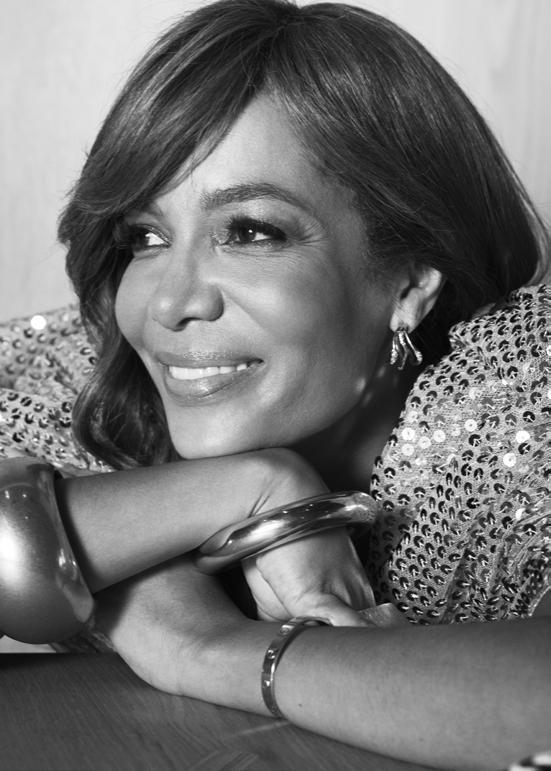
Tell us about the first book, “Summer on the Bluffs.” Oak Bluffs, which is on Martha’s Vineyard, is one of the few places in America where Black people were allowed to buy beachfront property. In the book we have a heroine—a fairy godmother who has these three goddaughters she’s mothered their entire lives. She’s a different type of mother, which was important to me to explore. One of them will inherit her home, and along the way there are twists and turns with the culmination of only one of the girls getting the house.
Have you conceptualized the next two books? The next book is called, “Summer on Sag,” and the third one is, “Summer on High Point,” another two areas in the Hamptons where Black people were allowed to buy beachfront property. You know firsthand how it feels to be a victim, and through your work, you help others to understand what that’s like. Would you say through projects like “Truth About Murder (with Sunny Hostin),” the docuseries you cohosted and executive produced last year, you’ve been successful in doing so? I hear it all the time, and it still surprises me when someone says his or her life has changed as a result of something I’ve done or said. I know I’m in the right place, making a difference, and that’s important to me. One of the things I’m interested in is all of these cases we’re seeing like Breonna Taylor or Ahmaud Arbery. No one has been arrested or held accountable, and these victims are dead and their families want justice. It’s powerful to tell these stories, and I want to continue to do these kinds of things.
Since 2016 you’ve been a co-host on “The View”, which is now in its 24th season; what do you think makes it such a success? Barbara Walters had this idea to get a group of women around a table to do what we all do with our friends, talking and sharing a difference of opinions. What the twist is, you have women that come from different places in their lives, different decades, different viewpoints, talking about things most people generally don’t talk about. And we do—nothing is off the table. We do it every single day and are able to do it in a way where we can come back to the table as colleagues.
Is there anything you haven’t done yet that you would like to do? I want to create more; producing is a goal of mine. I’d like to see my books become a series, and I’m working to make that happen. I also think it’s very important to be a part of the political process. I just don’t know yet what that looks like for me.
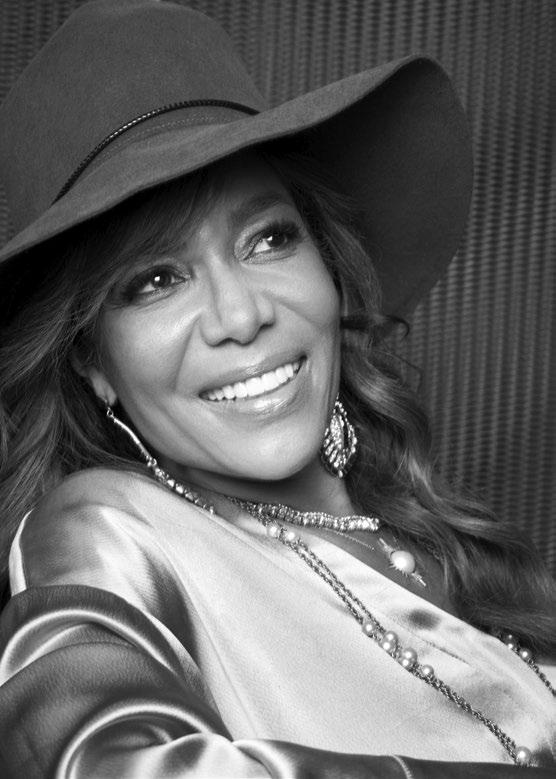
What advice do you have for others following a similar path? First, that anything is possible. Also, when you’re in a place in your life when you can help someone, there’s nothing more important because you cannot really live a perfect day without doing something for someone who can’t repay you. When you have the opportunity to be the champion in the room, you must do it with great rigor.
